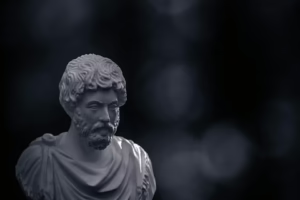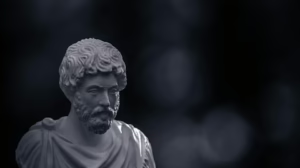The Art of Thought: Innovative Philosophy Books to Broaden Your Horizons
In the vast, interconnected world of ideas, philosophy serves as a fundamental discipline designed to challenge our perception of reality and the frameworks through which we understand our experiences. A profound engagement with philosophical texts not only deepens our insight into the human condition but also enriches our capacity for critical thinking. This article explores innovative philosophy books that broaden intellectual horizons, offering a selection of works that challenge, inspire, and provoke thought.
1. The Philosopher’s Toolkit: A Compendium of Concepts
Edited by Julian Baggini and Anthony Flew, The Philosopher’s Toolkit: A Compendium of Concepts is an essential starting point for anyone interested in delving into philosophy. This book combines a detailed catalog of philosophical concepts with practical tools for critical thinking.
Key Concepts
One of the central strengths of this volume is its emphasis on applying philosophical concepts to everyday situations. Readers are guided through topics ranging from ethics to metaphysics, learning how to apply these ideas to contemporary issues and personal dilemmas.
Why Read It?
This book is invaluable for both novices and seasoned philosophers. It empowers readers to articulate their thoughts more clearly and defend their viewpoints effectively, making it a vital resource in an age where information is both abundant and often misleading.
2. How to Be an Antiracist by Ibram X. Kendi
Kendi’s How to Be an Antiracist is an innovative hybrid of memoir and philosophy that challenges traditional notions of race, identity, and ethics. Kendi presents a robust framework for understanding racism as not only an individual prejudice but as a systemic issue that pervades society.
Philosophical Insights
Kendi argues for a re-examination of societal structures and personal beliefs, encouraging readers to engage in active introspection to understand their role in perpetuating or dismantling racism. By intertwining personal narrative with philosophical argumentation, Kendi broadens the scope of philosophical inquiry to include social justice and ethical action.
Why Read It?
This book not only educates readers about the complexities of race but also offers a philosophical framework for understanding moral responsibility in the fight against systemic injustice. It’s a must-read for anyone aiming to enrich their understanding of ethics in a contemporary context.
3. The Structure of Scientific Revolutions by Thomas S. Kuhn
Thomas Kuhn’s seminal work, The Structure of Scientific Revolutions, reshapes our understanding of science and philosophy. Kuhn introduced the concept of “paradigm shifts,” arguing that scientific progress is not linear but instead proceeds through revolutions that drastically alter the prevailing worldview.
Philosophical Implications
This work challenges the classical view of science as a cumulative process and introduces the idea that the history of science is rich with conflicting theories and deep-seated beliefs. Kuhn’s analysis invites readers to question the very foundation of scientific inquiry, which leads to deeper discussions about truth, knowledge, and justification.
Why Read It?
Kuhn’s exploration of scientific paradigms offers profound insights into how beliefs shape our understanding of the world. This book remains relevant in today’s discussions about scientific literacy and the philosophy of science, especially in an era where misinformation can spread rapidly.
4. Thinking, Fast and Slow by Daniel Kahneman
Nobel laureate Daniel Kahneman’s Thinking, Fast and Slow is a groundbreaking work that investigates the dual systems of thought: the fast, intuitive reactions and the slower, more deliberate reasoning processes.
Psychological and Philosophical Insights
Kahneman’s exploration of cognitive biases and heuristics is highly relevant to philosophical discussions about rationality, decision-making, and free will. By elucidating how our minds work, he challenges us to reconsider our understanding of logic and reason within philosophical inquiries.
Why Read It?
This book holds significant implications for those interested in ethics, psychology, and philosophy by revealing how cognitive biases can lead us astray in our judgments and moral decisions. It’s a practical guide to improving critical thinking, making it an essential read.
5. Being and Time by Martin Heidegger
In Being and Time, Heidegger explores the nature of existence, a topic that has significant implications for not just philosophy but also literature, art, and science. Through his concept of “Dasein,” Heidegger delves into the essence of being, temporality, and our relationship with the world.
Existential Inquiry
Heidegger’s intricate analysis of existence invites a re-examination of how we consider our place in the world and the nature of our relationships with others. His work is foundational for existentialism and phenomenology, influencing countless thinkers and artists.
Why Read It?
This dense yet rewarding text challenges readers to confront fundamental questions about their existence. While it requires careful contemplation, the insights gained can significantly deepen one’s philosophical and personal understanding of life.
6. Critique of Pure Reason by Immanuel Kant
Immanuel Kant’s Critique of Pure Reason has enduring relevance in contemporary philosophy, challenging us to ponder the limits of human understanding and the relationship between experience and knowledge.
Epistemological Framework
Kant argues that while knowledge originates from experience, it is shaped by our cognitive faculties, which impose certain structures on our perceptions. This fundamental insight raises questions about objectivity, reality, and the nature of truth.
Why Read It?
Understanding Kant’s work is essential for anyone interested in metaphysics and epistemology. His arguments have profoundly influenced modern philosophy and the scientific enterprise, making this classic text a cornerstone for philosophical inquiry.
7. The Republic by Plato
Plato’s The Republic is a foundational text in Western philosophy. Through dialogues featuring Socrates, Plato explores justice, the ideal state, and the philosopher-king idea, engaging with questions that remain relevant in contemporary discourse about governance and morality.
Political Philosophy
Plato’s exploration of justice offers insights into the nature of individual and societal ethics. His arguments challenge readers to consider what a just society would look like and the moral implications of both leadership and citizenship.
Why Read It?
Plato’s insights into justice and politics are timeless and continue to inform contemporary debates about governance, ethics, and the role of individuals in society. This makes it a crucial text for anyone interested in politics and philosophy.
8. Sapiens: A Brief History of Humankind by Yuval Noah Harari
While not a traditional philosophical text, Yuval Noah Harari’s Sapiens offers a sweeping overview of human history, examining our development from hunter-gatherers to a technologically advanced society.
Philosophical Reflections
Harari’s work raises important philosophical questions about humanity’s purpose, the nature of happiness, and the impact of narrative on our understanding of reality. He examines how shared beliefs shape societies and our collective future.
Why Read It?
Sapiens provides a broad context for understanding human existence, making it crucial for anyone interested in anthropology, history, and the philosophy of culture. The book is thought-provoking, challenging readers to consider their place in the grand narrative of humanity.
9. The Phenomenology of Spirit by G.W.F. Hegel
Hegel’s Phenomenology of Spirit is a challenging but rewarding exploration of consciousness and self-awareness. Hegel articulates a developmental process through which individuals achieve self-realization and access a higher understanding of reality.
Dialectical Method
The dialectical method that Hegel employs invites readers to engage with contradictions and conflicts, ultimately leading to greater synthesis and understanding. His ideas have shaped modern philosophy, particularly in existentialism and Marxism.
Why Read It?
Hegel’s work is foundational for understanding contemporary philosophical discourse and has far-reaching implications in various fields, including history and political theory. Diving into this complex text can yield profound insights into consciousness and understanding.
10. The Tao of Pooh by Benjamin Hoff
In The Tao of Pooh, Benjamin Hoff uses the characters from A.A. Milne’s beloved children’s books to introduce the principles of Taoism. This whimsical approach offers a unique way to engage with philosophical concepts.
Philosophical Lightheartedness
The book simplifies complex philosophical ideas through the lens of familiar characters, illustrating that philosophy doesn’t have to be dry or overly academic. It emphasizes the value of simplicity, mindfulness, and living in harmony with nature.
Why Read It?
This text is perfect for anyone seeking to approach philosophy in a more lighthearted manner. It serves as an accessible introduction to Eastern philosophy, providing practical wisdom for everyday life.
Conclusion
Philosophy is a powerful tool for expanding our understanding of ourselves and the world around us. The books mentioned in this article provide diverse perspectives and innovative ideas that challenge traditional ways of thinking. Whether through rigorous inquiry or lighthearted exploration, engaging with philosophy continues to be a vital practice for anyone looking to broaden their intellectual horizons.
As we explore these innovative texts, we are reminded that philosophy is not just an academic discipline but a lifelong pursuit of understanding and wisdom. Through careful study and reflection, we continue to engage in the art of thought, allowing philosophical inquiry to enrich our lives in profound ways.
References
- Baggini, J., & Flew, A. (2003). The Philosopher’s Toolkit: A Compendium of Concepts. Wiley-Blackwell.
- Kendi, I. X. (2019). How to Be an Antiracist. One World.
- Kuhn, T. S. (1962). The Structure of Scientific Revolutions. University of Chicago Press.
- Kahneman, D. (2011). Thinking, Fast and Slow. Farrar, Straus, and Giroux.
- Heidegger, M. (1927). Being and Time. Harper & Row.
- Kant, I. (1781). Critique of Pure Reason. Cambridge University Press.
- Plato. (380 BC). The Republic. Various translations.
- Harari, Y. N. (2011). Sapiens: A Brief History of Humankind. Harper.
- Hegel, G. W. F. (1807). The Phenomenology of Spirit. Oxford University Press.
- Hoff, B. (1982). The Tao of Pooh. Penguin Books.
Engaging with these texts promises not just to deepen your philosophical understanding but also to enrich your experience of life itself. The quest for knowledge is never-ending, and these innovative works serve as essential companions on that journey.


























Add Comment